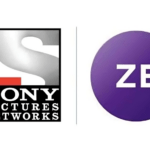New Delhi: The Indian Broadcasting Foundation along with ABP News Network, Sony Pictures Network India and Times Network replying to a consultation paper released by TRAI in July on KYC of DTH Set-Top Boxes to stop piracy and illegal smuggling to other countries told the regulator that its paper on KYC for DTH STBs was welcome and also backed the incorporation of location-based services in the STBs.
New Delhi: The Indian Broadcasting Foundation along with ABP News Network, Sony Pictures Network India and Times Network replying to a consultation paper released by TRAI in July on KYC of DTH Set-Top Boxes to stop piracy and illegal smuggling to other countries told the regulator that its paper on KYC for DTH STBs was welcome and also backed the incorporation of location-based services in the STBs.
Times Network said that the e-KYC of DTH STB is very much required and should be made mandatory for all DTH subscribers to effectively address the smuggling of DTH STBs to other countries. It suggested that the installation address must be strict as per the documentary proofs submitted with the DTH retailer mapped to the customer to know the seller as smuggling usually happens through the loose seller network. DTH services should be activated only after physical verification. The broadcaster suggested re-verification after every 3 years with DTH operator submitting data to the regulator on the number of subscribers without verification of documents.
It also backed the incorporation of LBS in Set-Top boxes being seeded in the market with the additional cost being part of the new STBs. Given the large number of STBs already being deployed, it suggested the same should not be mandated for existing STBs. The KYC process should be driven by technology causing a minimum disturbance with the exercise being completed within six months from notification by the authority. Times Network noting the already illegally smuggled boxes in service outside India termed the KYC of existing boxes as imperative.
ABP News Network also welcomed TRAI’s decision to examine the KYC of DTH Set-Top boxes. It backed the suggestion to fill KYC and mandatory Aadhar Card verification for customers purchasing DTH equipment. It also recommended the activation of location-based services in DTH Set-Top boxes. It said such a rule must pass the test of Constitutionality and a mechanism be developed so that KYC of DTH Set-Top boxes may be confirmed for customers without failing foul of the Aadhar judgment.
On periodic verification, it said that OTP for verifying e-KYCs has become the for authentication and the same can be used for DTH STBs also. The periodicity of such verification should be done on a yearly basis. It said that the e-KYC of new connections must be at par at existing STBs. Given the huge number of STBs currently deployed it suggested a period of 150 days to verify the existing STBs for DTH.
Sony Pictures Network India said that there was an urgent need for the introduction and enforcement of meaningful e-KYC of DTH STBs to control the smuggling of DTH STBs outside of India and to bring in some level of threshold checks to counter the menace of rampant piracy. On periodic verification, it suggested physical verifications of STBs at regular intervals in a phased manner spread over 6 months to 1 year time periods. The broadcaster suggested immediate disconnection of the signals of STB and legal action against the subscriber if the STB isn’t found at the given address during physical verification.
SPN India has suggested a stringent e-KYC mechanism to help to identify pirates. It said that many STBs are present in Bangladesh through illegal smuggling where the broadcaster has its footprints where operators demodulate its signals and retransmit the same to its population. This hurts the DPOs along with the broadcasters as well. To curb smuggling even if pirates somehow acquire the DTH STBs it suggested the geo-fencing of STBs which will stop any illegal transfer of STBs. It also noted that non-DTH operators resort to using DTH STBs to illegally retransmit pay channels on their network when the broadcaster disconnects its pay channels due to the payment of its dues. Adopting and implementing a robust KYC or e-KYC mechanism will go a long way in curbing such illegal activities too.
SPN India recommended that location-based services (LBS) should be enabled not only in DTH STBs but also of other distribution platforms operators to track location and facilitate verification. The broadcaster said that pirates sell broadcaster’s content that is gained through illegal procurement of DTH STBs at very nominal cost, thus impacting both DTH operators and broadcaster’s revenues. It added that the cost involved must be borne by the DPOs since it is their duty to ensure the content of the broadcasters is secured.
Indian Broadcasting Foundation (IBF) recommendations were on the same line of SPN India. The apex body also noted that a foreign distribution platform had initiated legal proceedings in India with an aim to seek relief from the menace of piracy and was granted some injunctions. It suggested that DTH operators be compelled to use spot beams to provide service by DTH. It said that spot beam would allow the DTH and HITS operators to provide more channels also ensuring strong signal quality.’
IBF suggested three options for the implementation of location-based services. First, it suggested fixing a unique tamper-proof QR code permanently on every STB which should be scanned during the time of installation. The scanned QR code along with mobile phones LBS information would be sent back to the DTH operator. The QR code once scanned through the DTH APP will successfully enable detection of the STB installed at the subscriber premises since the DTH APP is connected to an LBS enabled telecom network.
The second option suggested, was that the head-end of the DTH operator would trigger a unique QR code visible on the TV screen valid for a few minutes. The QR code once scanned through the DTH operator’s mobile app will successfully enable detection of the STB installed at the subscriber home and the location of the STB, since the mobile phone is connected to LBS enabled telecom network. The third option is to have STBs enabled with mobile SIMs so that the location of the STB can be verified when required through the LBS of the telecom network. At the time of installation by the DPO’s representative, the STB would connect to the telecom service and the geolocation data through the telecom network should be saved into the DTH system as installation coordinates data and used for future reference.
TRAI now has to decide the future course on the issue with the broadcasters united in its stand for e-KYC and location-based service for STBs to tackle piracy while Tata Sky,Airtel Digital TV, and Dish TV are opposed to the same. Stakeholders can send their counter comments on the same till 2nd September.







